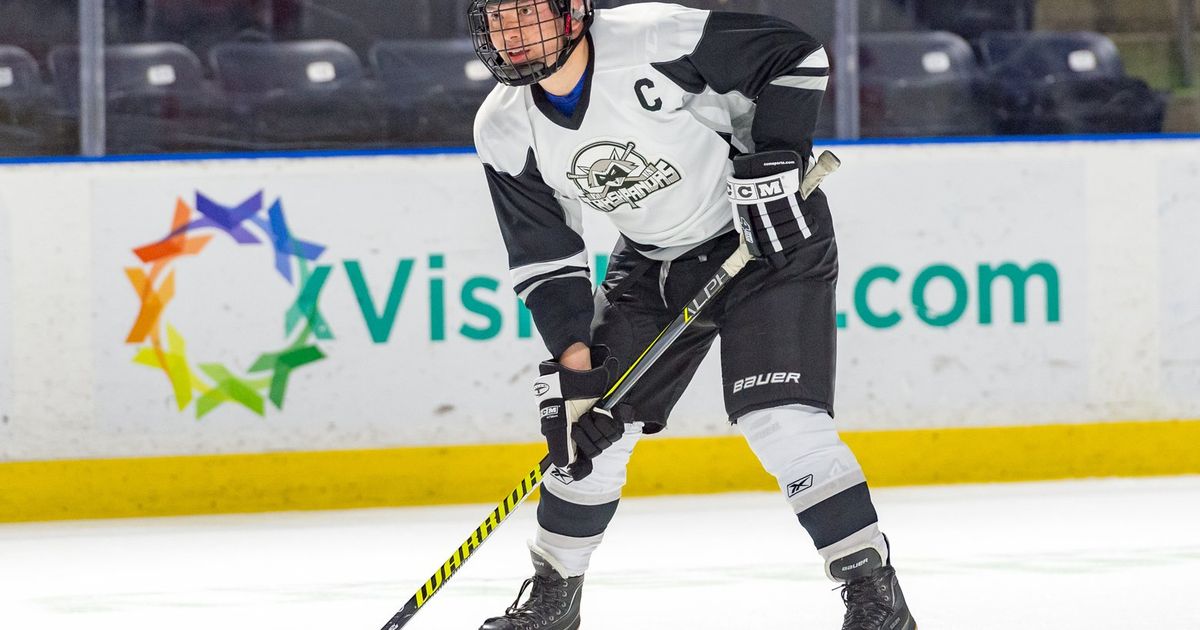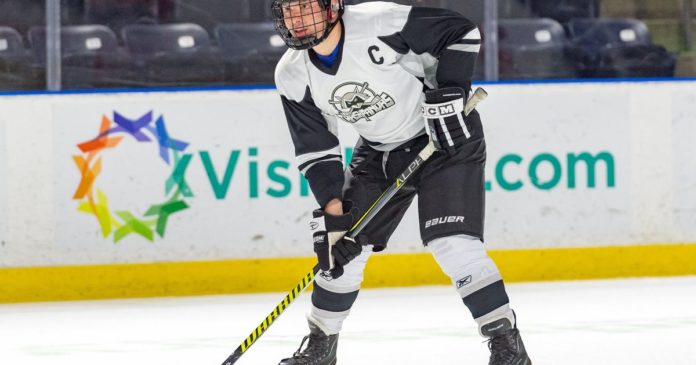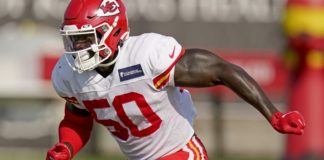
Gilbert Villalpando grew up shunning sports in his native Texas, feeling excluded as a “skinny, scrawny kid” who also secretly happened to be gay.
Beyond the physical disparities, which others around him singled out, Villalpando, 42, also struggled mentally to relate to an aggressively masculine and sometimes misogynistic mindset on playing fields and in locker rooms. “I was already being treated differently and on top of that it wasn’t a comfortable environment,” he said.
So, he avoided organized sports through middle school and only began playing tennis and soccer at age 16, feeling them more accommodating at a time he’d started openly coming out about his homosexuality. But it wasn’t until attending university in Wisconsin and being lured by friends into a gay hockey league that Villalpando truly felt more comfortable and part of a group.
And starting Saturday, he’ll hope to recreate some of that feeling by partaking in the second annual Seattle Pride Classic hockey tournament at the Kraken Community Iceplex for LGBTQ+ and allied players. The two-day event, presented by Kraken founding partner Symetra and free for spectators, features 10 teams and more than 140 players — about two thirds of them identifying as LGBTQ+.
About 20% of participants identify as nonbinary or trans, another third as female and the rest as male. Special guests will also participate, including former Boston Bruins defenseman Andrew Ference and Chicago Blackhawks farmhand Kurtis Gabriel — both outspoken supporters of the LGBTQ+ community.
Teams are named for various LGBTQ+ trailblazers and icons, including Harvey Milk, Marsha P. Johnson, Billie Jean King and Nashville Predators prospect Luke Prokop, the first player under contract with an NHL team publicly to come out as gay. Kraken play-by-play radio broadcaster Everett Fitzhugh and Seattle Thunderbirds public address announcer Tom Helm will announce the two conference championship games alongside Trinity Parker of Bellevue-based Symetra.
The Kraken will paint a rainbow on the ice surface of the complex’s main rink, which is used for workouts by the NHL team.
“Players told us that in their lifetime they never imagined skating in an LGBTQ+ hockey tournament with teams named after gay rights activists,” said Steven Thompson, president and co-founder of the Seattle Pride Hockey Association, which is staging the event.
For Villalpando, who recently joined the association’s board, he just misses the feeling he had playing in the Madison Gay Hockey Association back in Wisconsin starting in 2007. Washington has no such specifically-inclusive hockey leagues, though there’s hope events such as this one could spur the creation of some.
“I got accustomed to the diversity and the discussions that happened in the locker room when you have LGBT folks that I wasn’t getting from the regular (sports) groups,” Villalpando said. “And so, when I found out about this tournament, I wanted to be a part of it.”
Villalpando moved to Seattle five years ago and has spent the past four playing in a regular recreational hockey league, where he says his teammates have been friendly and “try to be inclusive” but the atmosphere isn’t the same.
Part of it is the language sometimes shared between players in locker rooms, which he said can diverge toward sexist.
“If there’s a female that we played against, you’ll hear some comments like ‘Oh, you totally owned her’ — that kind of language,” Villalpando said. “Or ‘She would have been better in the bedroom.’ It goes off in some directions. And I’m like ‘Really? Why are you even saying that? If they beat us, you’d probably say she was a lesbian.’
“That’s the kind of environment from the locker room talk that gets very frustrating,” he said. “And so, when you have an LGBT league, people are not speaking in that way. There’s more of a conversation of like ‘Hey, great game!’ And the way I played in the Madison Gay Hockey Association, there were already expectations of behavior where nobody was going to talk negative about anybody, it’s a developmental league so we appreciate everybody at different levels, it’s more collaborative. That’s what I was longing for.”
And while Villalpando insists the majority of those he’s played with recreationally are “good guys,” he’s grown weary of being the torchbearer for locker room inclusivity.
“It’s just not that comfortable and I don’t always want to be an advocate all the time,” he said. “I’ll be like ‘Hey, look at what you said. This is not inclusive to women.’ And they’ll go, ‘Well, you’re not a woman, why do you care?’
“They’re not bad people, but that’s just taxing.”
For Randy Cote, 35, who is also gay and plays in a local recreational league, such experiences among LGBTQ+ members are familiar. Cote — who came out about eight years ago — grew up in a hockey-playing family in Lynnwood and always felt comfortable within the sport. But he knows others sometimes avoid the environment due to prior toxic experiences in locker rooms or fears of not fitting in.
“A lot of people view hockey as sort of a hypermasculine sport and might be in an unwelcome place,” Cote said. “And I’ve always been inspired by organizations and people that do the work to leave the door open and advocate for players that aren’t just straight white guys.”
Cote participated in last year’s inaugural Pride event at Olympic View Arena in Mountlake Terrace. He hung out at the rink afterward and played in a regular recreational league game there a few hours later.
“And it was a different feeling, even though I’m captain of my rec team,” Cote said. “I use pride tape on my stick every game and I think we’ve created a team in our league that’s really accepting — we’ve got women players, we’ve got gay players. But something felt a little different playing in a space that was designed as an inclusive space versus playing in a league game.”
This weekend’s event is one of several similar tournaments being held nationwide throughout the year. Some participants from those events will be playing this weekend, including two of Villalpando’s friends from Alaska and Arizona.
“The community is pretty tight in that you get to make some friends and lasting relationships because the people play across all of these events,” he said. “They block it on their schedules and take a day or two off so they can enjoy the city and meet up with friends they can be with from other leagues. So, it’s a good thing.”








